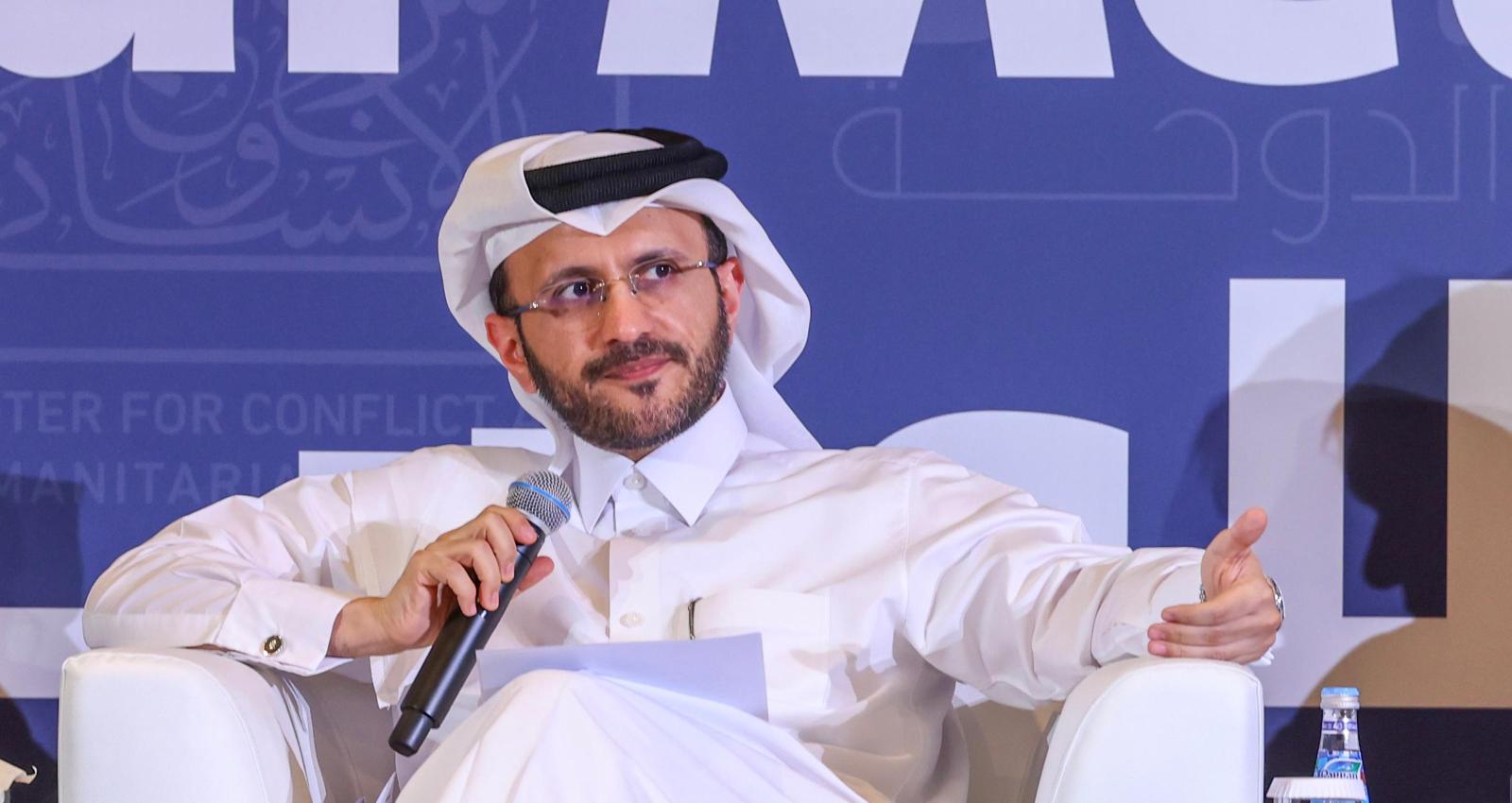Advisor to Prime Minister, Spokesperson of MOFA Participates in Session on Humanitarian Diplomacy, Frontiers of Conflict Mediation

Doha, December 09, 2024
Advisor to the Prime Minister and Official Spokesperson for the Ministry of Foreign Affairs Dr. Majed bin Mohammed Al Ansari participated Monday in a session titled "Humanitarian Diplomacy and the Frontiers of Conflict Mediation," as part of the Qatar Mediation Forum.
The session was also attended by HE Commissioner-General of the United Nations Relief and Works Agency for Palestine Refugees in the Near East (UNRWA) Philippe Lazzarini, HE UN Under-Secretary-General for Humanitarian Affairs and Emergency Relief Coordinator Martin Griffiths, and HE former chief of staff in the Office of the UN Special Envoy for Syria Hasmik Egian. It was moderated by Director of the Conflict Resolution and Track II Dialogues Program at the Middle East Institute Randa Slim.
Dr. Al Ansari emphasized that the State of Qatar supports opportunities to enhance, build, and maintain peace in the region, stressing in this context the need for the international community to pressure all parties to reach a permanent solution in the Gaza Strip.
He said that the absence of humanitarian diplomacy in Gaza, the unjust blockade, and the indiscriminate attacks on the Strip are major factors that have created a catastrophic humanitarian reality for millions of Palestinians, especially children, women, and the elderly, and deprived them of their basic needs. He also pointed out that the political paralysis resulting from the ongoing military conflict in Sudan has exacerbated the humanitarian crisis and displaced millions of Sudanese.
Advisor to the Prime Minister and Official Spokesperson for the Ministry of Foreign Affairs affirmed that the State of Qatar continuously plays effective roles in the fields of mediation, facilitating dialogue, and promoting unity to resolve regional and international conflicts. In this regard, he pointed to its successful good offices in Darfur, Yemen, Afghanistan, Iran, and other regions worldwide. He also stressed that Qatar does this without having any interest in the conflict, or that the conflict has any impact on it.
For his part, HE Philippe Lazzarini pointed out that impunity has become a worryingly widespread phenomenon, threatening the foundations of the global order.
His Excellency added that international law is repeatedly violated, particularly in Gaza, urging for enhanced accountability and prosecution of perpetrators of crimes in the occupied Palestinian territories and elsewhere.
In turn, HE Martin Griffiths said that humanitarian diplomacy is not a new concept, as the International Committee of the Red Cross has been applying it for decades, pointing out at the same time the need to reformulate it in a way that is consistent with the values of the new powers and the challenges of the era. He added that Qatar has proven its ability to enhance humanitarian diplomacy through its mediation, as it has contributed to training practitioners in this field and supported international mediation efforts, especially in the countries of the Global South.
In turn, HE Hasmik Egian stressed that the politicization of humanitarian aid has become part of the international dynamics in the Security Council. She noted that this trend affects humanitarian priorities and hinders the delivery of aid to conflict areas. She said that the international community, including UN agencies, must separate humanitarian aid from international politics to ensure that it reaches those in need without hindrance.

